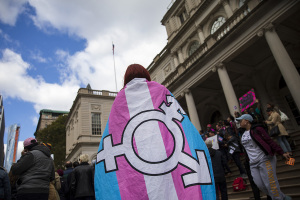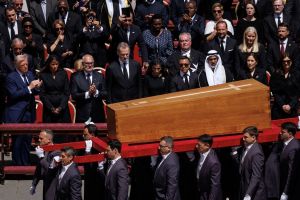'Life Is Miserable in Pakistan' — Activist and Friend of Shahbaz Bhatti Says Blasphemy Laws, Anti-West Sentiment Provoke Christian Persecution
Former Pakistani Parliamentarian Issues 'SOS Call' for Governments, Christian Communities to Take Action
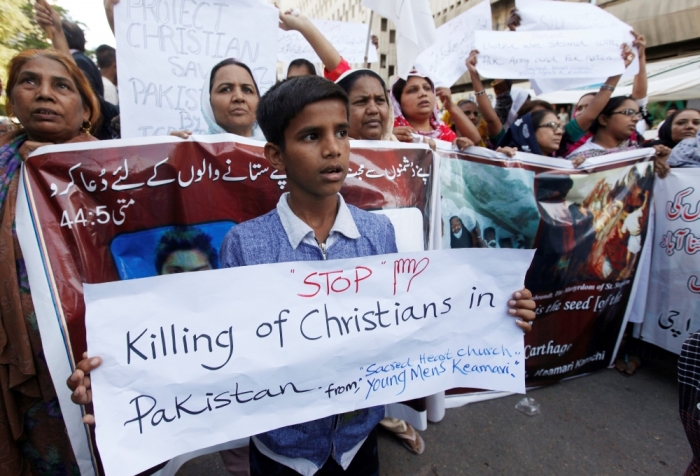
NEW YORK — A former Pakistani parliamentarian advocating for equal treatment for religious minorities back home claims life is sometimes hell for the Islamic Republic's Christian minorities, who are often victimized by blasphemy laws and bear the brunt of public resentment against Western nations like the United States.
"Due to our faith, we are persecuted. People are killing us, people are burning us, and people are putting us in jail. And (the) state (has) failed to protect the rights (of Christians) and (have failed in) their responsibility," said political and human rights activist Pervez Rafique. "The state doesn't have any solid and concrete policy and agenda and plan to protect marginalized and persecuted Christians and other non-Muslims in Pakistan."
Rafique, a former minority member of parliament representing the Pakistan People's Party in Punjab, worked alongside Shahbaz Bhatti, the Christian minorities minister who was assassinated in 2011, as a chief coordinator for All Pakistan Minorities Alliance. At the time of transition prompted by Bhatti's murder, a clash with the former leader's family members forced Rafique and supporters to leave the organization he had served for more than 10 years. Since then, Rafique has helped found another group, with a similar name, the All Pakistan Minorities Alliance-Founders, which in combination with the PAK Christian Fellowship, represents around 25,000 people, he told The Christian Post.
"Religious organizations, especially the Taliban and their allied organizations, they are getting a message to the international community," Rafique added. "They think that (by) persecuting Christians, attacking Christians and killing Christians, they will get revenge (on) the international community, such as America or the European community or the United Nations (and) those that are taking steps for peace-building against ISIS, against Islamist militant organizations."
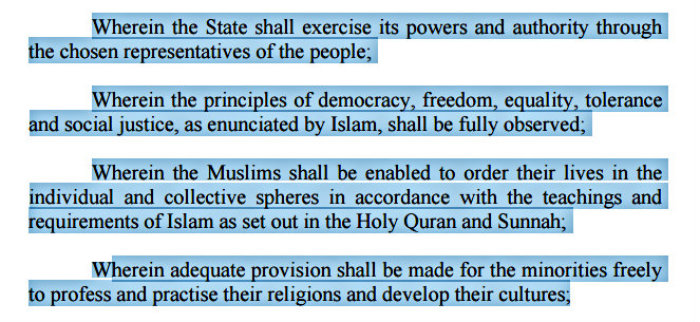
Christians, along with Hindu citizens, account for 3 to 4 percent of the estimated 180 million people living in the country, and are in general treated as second-class citizens. Many barely survive financially, face discrimination in the workforce, and are scapegoated due to their "Western" faith by Islamic terrorists and intolerant Muslims. Pakistan's constitution assures "adequate provision" for minorities to "freely profess and practice their religions and develop their cultures," yet allegations of violating the country's blasphemy laws are often leveled arbitrarily against them based on the words of purported witnesses, and sometimes over personal grudges.
Christian communities have also been targets of attacks by Islamic extremists. The most recent attacks against Christians occurred on Sunday, March 15 during services at churches in the Youhanabad area of Lahore, the capital of Punjab state and Pakistan's second largest city. Two suicide bombers targeted two neighboring Protestant and Roman Catholic churches, killing at least 15 people and injuring nearly 80 others.The Pakistani Taliban, or Tehrik-i-Taliban, claimed responsibility for the attacks.
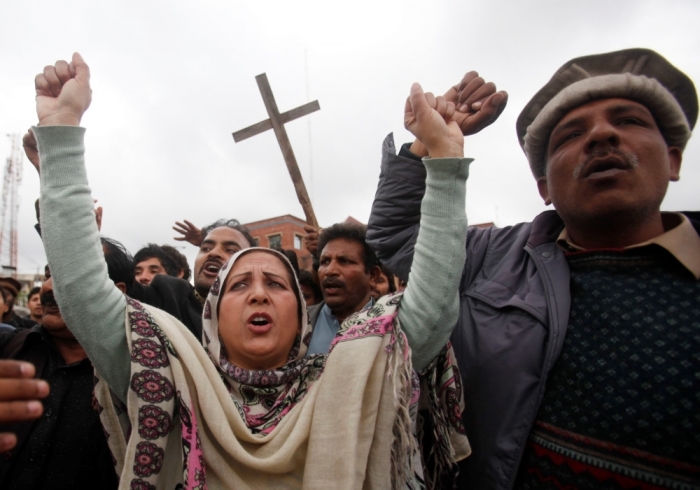
Some residents in Youhanabad, a predominantly Christian area, reacted to the terrorist attacks in fury, and reportedly killed two men suspected of being associated with the bombers. Thousands of Christians also flooded the streets, expressing outrage over again being targeted and demanded justice.
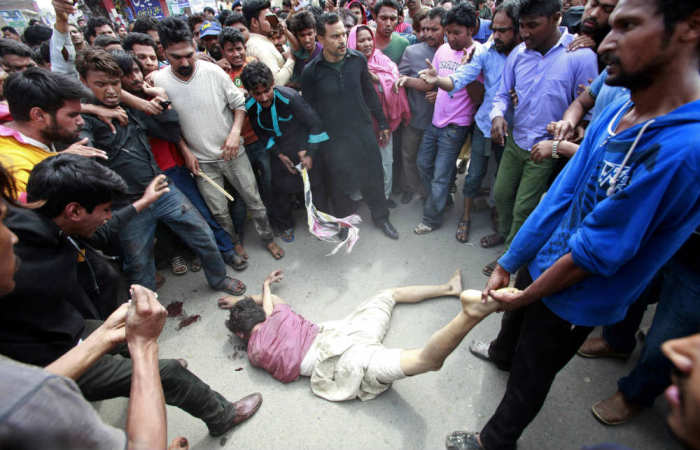
Rafique told CP that after the attacks, he had been receiving "lots of calls" from Lahore, where his organizations have "a strong network." He is from Faisalabad, another large city with a Christian presence in Punjab.
"I think this is an alarming situation for the religious minority community of Pakistan, especially for the Christian community of Pakistan," Rafique told CP after strongly condemning the church attacks.
"Pakistani Christians are in a tough state right now, their lives are at stake. And there is nobody who's going to put the pressure on the government from America or from the Congress and from the religious organizations," he added. "So I ask the international community to play their vital role, visible role, to protect the Christian communities and the persecuted religious minority communities in Pakistan, those who are under severe, severe threat from the Taliban."
Rafique, who emigrated to New York City in February 2014, told CP that he was desperately trying to garner support in the U.S. for the oppressed and persecuted Christians in Pakistan. He said he plans to do so by pressuring religious and humanitarian groups, political organizations and government bodies to demand that Pakistan repeal its blasphemy laws, protect its people, and promote tolerance. Rafique is also appealing to Christian-interest organizations to help equip in various ways the everyday Christians and activists who have been on the front lines fighting for equal treatment under the law in Pakistan.
In November, the 43-year-old politician and human rights activist helped lead a demonstration in front of the United Nations headquarters, where his group submitted a memorandum demanding that the international body remind Pakistan of its obligations under the Universal Declaration of Human Rights as a member state. Rafique and other group leaders have also personally delivered their message to Raja Ali Ejaz, consul general at New York City's Pakistan Consulate.
In his discussion with CP, Rafique, whose favorite Bible passage speaks of restoration and liberation (Isaiah 61:1), laid out his organization's road map for education, empowerment and social mobility for Pakistan's minority Christians. He also explained how Christians face discrimination in employment, and are viewed as a "sweeper class" in Pakistan.
Initially, Rafique explained the political and legal situation for Christians in Pakistan:
"In Pakistan, the constitution of Pakistan is biased, and the laws in Pakistan are (discriminatory). Due to the laws and constitution which has treated us on the basis of religion, caste, color or creed, we the non-Muslim citizens, religious minorities and especially Christian community of Pakistan feel that we are second- and third-class citizens in Pakistan."
"The state (has) become a religious extremist state. It is a theocratic state, which is against the wish and against the ideas of the founding father of Pakistan, Muhammad Ali Jinnah. He categorically mentioned in his first address to the Constituent Assembly (of Pakistan) in 1947, Aug. 11, that the state doesn't have any affairs with religion, everyone is equal and have similar rights being a citizen of Pakistan, (whether) he's a Christian, Muslim, men, women, or any color, caste, or creed.
"But after his death, (there were) lots of political parties, lots of government schemes to promote and protect their government. They always introduced religious clauses in the constitution of Pakistan and introduced religious discriminatory laws which harm the religious minorities, especially the Christian community of Pakistan.
"The majority of people relate (the) Christian community with the international community, with the American West — a Christian-majority country — with us, and they treated us in that way."
Watch Bishop Samuel Azariah, primate of The Church of Pakistan (United) explain blasphemy laws:
Rafique also offered thanks to the international community while calling on "every Jesus-filled and loving person" to act on behalf of Pakistan's Christians:
"Today, I want to first (say) thanks the international community, those who are already aware (of) the religious persecution, Christian persecution in Pakistan. But I want to convey, or I want to request (of) them, put your eye on the Pakistani religious extremism and save your brothers and sisters in Christ, because we are apart of one Body, with Jesus as our head. It is the responsibility of every humanitarian organization and every church-based organization, and every Jesus-filled and loving person, that you should do the things and try to save your Pakistani brothers and sisters in Pakistan.
"We feel insecure. We feel marginalized, and we are marginalized. And we feel every time under a severe threat, psychologically, that we never know when anybody (will) charge us under the blasphemy law, when anybody (will) charge us under the other constitutional and Pakistani penal code laws, and put us (behind) bars, or burn us, or kill us." ...
"Whenever the Muslim organizations protest against America, they burn the cross, they burn the American flag. Whenever they want to protest against the European Union, they burn the cross, they burn the churches, they threaten the Christians. They relate us due to our faith."
Rafique said the Nov. 4, 2014, attack on Shahzad Masih and his pregnant wife, Shama Bibi — both beaten and burned to death after being accused of blasphemy by Muslims in Punjab — was a wake-up call for many Pakistanis:
"It is a case where we say too much is too much. It is too much. ... Make this case a reference case, because right now all the religious organizations in Pakistan, they are also clear that this blasphemy law is being misused. Before 20 years when we started talking about all this blasphemy law, people (were) not ready even to talk about this issue. After 15-20 years, now in this case, after this case, we have an achievement that religious Muslim organizations, religious clerics from the Muslim community also, realized that yes, this law is being misused." ...
"After this case, we feel more insecure in Pakistan, and there's nobody who can speak for their rights. People have small groups but they are not influential. International media, international community should come up with this and be the voice of (the) voiceless. We are trying to be the voice of (the) voiceless and we cannot alone deal with this issue, until or unless the international community will engage with us and stand with us. This is a time to stand with humanity. This is the time to stand with Christianity, and this is the time to stand with all the people, those who are persecuted in Pakistan, in the name of religious or caste, color or creed."
Watch a news report on a Pakistani "blasphemy" couple burned alive in the video below:
Rafique said the key to ensuring equitable treatment for all Pakistanis is for the government to transition away from being a theocratic state:
"We are a peace promoter. We want to change Pakistan in a progressive and secular and liberal state from the theocratic state. And we want to assure the rights of every citizen, equal opportunities and equal rights and equal progress for all. So we ask the international community, international agencies, international organizations, United Nation, we ask big players of (the) international community, those who are specially engaged with Pakistan, to ask Pakistan to implement on the United Nations Declaration for Human Rights … to make them bound to act like that charter."
Rafique also mentioned his group's 10-year road map for advancement:
"Also for the development of Pakistani Christians, we had a 10-year road map and next year, I want to, as a leader of Pakistan Christian community, as organization (leader), I want to launch a first-ever road map for the Christian development in Pakistan. We want to develop them educationally, economically and religiously and socially."...


















